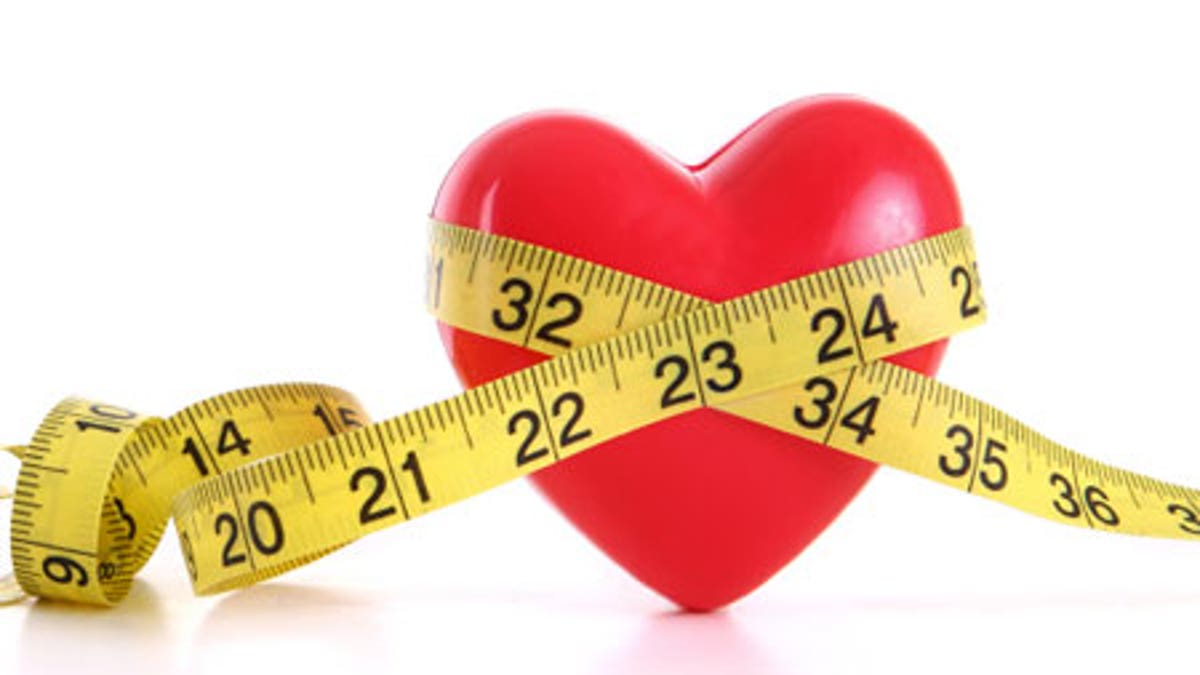
(iStock)
When Allison Richie began college four years ago, she was 5-feet-10 and weighed 150 pounds.
Nine months later, the Dallas native had skipped past the “Freshman 15” and gained 40 pounds “fairly quickly.” She would continue to gain and lose weight throughout her time at Fordham University in New York, attributing it to cafeteria food 'like cookies," beer and fattening choices.
Richie, 22, weighed 198 pounds at her heaviest. But along with her weight gain came a spike in her cholesterol levels, which had already been high. Her total cholesterol, which at one point was 190 mg/dL, was up to 230 mg/dL. The American Heart Association says a desirable total cholesterol level is under 200 mg/dL.
“My mom freaked out,” Richie said. “I think my weight gain definitely contributed to my cholesterol increasing.”
And with good reason: Although Richie's LDL to HDL ratio was OK at the time, her triglycerides were a little high at 151 (health experts recommend triglyceride levels of less than 150), putting her at risk for heart disease and stroke later in life.
Defining Cholesterol
Cholesterol is a waxy, fat-like substance found throughout the body that is carried in blood particles called lipoproteins.
Low-density lipoproteins, or LDLs, are considered the "bad cholesterol," which at high levels can cause cholesterol to clog the arteries, leading to heart disease.
High-density lipoproteins, or HDLs, are the "good cholesterol" and carry cholesterol back to the liver to remove it from the body. Most cases of high cholesterol stem from diet. An excess of either total cholesterol or LDL cholesterol in the blood creates a risk for heart disease and atherosclerosis, the narrowing of arteries from plaque.
Richie said her doctor was hesitant to put her on cholesterol-lowering medications, because, like most medications, they carry some undesirable side effects, especially for someone Richie's age.
There are three ways to avoid taking cholesterol-lowering medicines: Eating a heart-healthy diet, getting enough physical activity and avoiding tobacco.
Richie had one base covered — she didn’t smoke; so she had to figure out a way to eat healthier and exercise.
Treating High Cholesterol
Dr. Richard Stein, a spokesman for the American Heart Association and professor of medicine and cardiology at New York University School of Medicine, told FOXNews.com that patients with high cholesterol levels must make a lifestyle commitment and then follow up with regular visits to the doctors.
Stein, who has never treated Richie, recommends a Mediterranean diet or a version of that called the DASH Diet (Dietary Approaches to Stop Hypertension) for people trying to lower their cholesterol levels.
“The DASH Diet is designed to treat hypertension, and you can shop for it without going into fancy stores,” he said. “I would try the diet, try exercising, and definitely stop smoking.”
The DASH Diet includes:
— 6 to 12 servings of grain products per day;
— 4 to 6 servings of fruits per day;
— 4 to 6 servings of vegetables per day;
— 2 to 4 servings of low fat or non-fat dairy foods;
— 1.5 to 2.5 servings of lean meats, fish or poultry per day;
— 3 to 6 servings of nuts, seeds and greens per week.
If you are going to exercise, it must be 40 to 60 minutes three times a week or 30 minutes “most days of the week,” Stein said.
Making Healthy Choices
By her senior year of college, when Richie had moved into her own apartment and was cooking healthier foods, she had lost some of the weight she had gained and dropped her cholesterol levels by 20 mg/dL. She was taking a daily regimen (which she continues today) of fish oil pills, CoEnzymeQ10 and Insitol — supplements that some doctors recommend to lower cholesterol. Richie said she believes those supplements have worked for her.
Since her graduation, Richie has moved back to Dallas and is in search of a job. She has taken even more steps to lower her weight and her cholesterol.
“I’m on the Jenny Craig diet, I’m now trying to lose all that awful weight I gained in college, so I’m making healthier choices,” she said. “It is because of my weight that my cholesterol went up. I’m also exercising five to six days a week, doing cardio and weights at the YMCA.”
Richie said it is her goal to weigh what she did before she left for college, and to get her cholesterol below 200 mg/dL.
“If you can lose the weight, your levels should come down,” Stein said.
